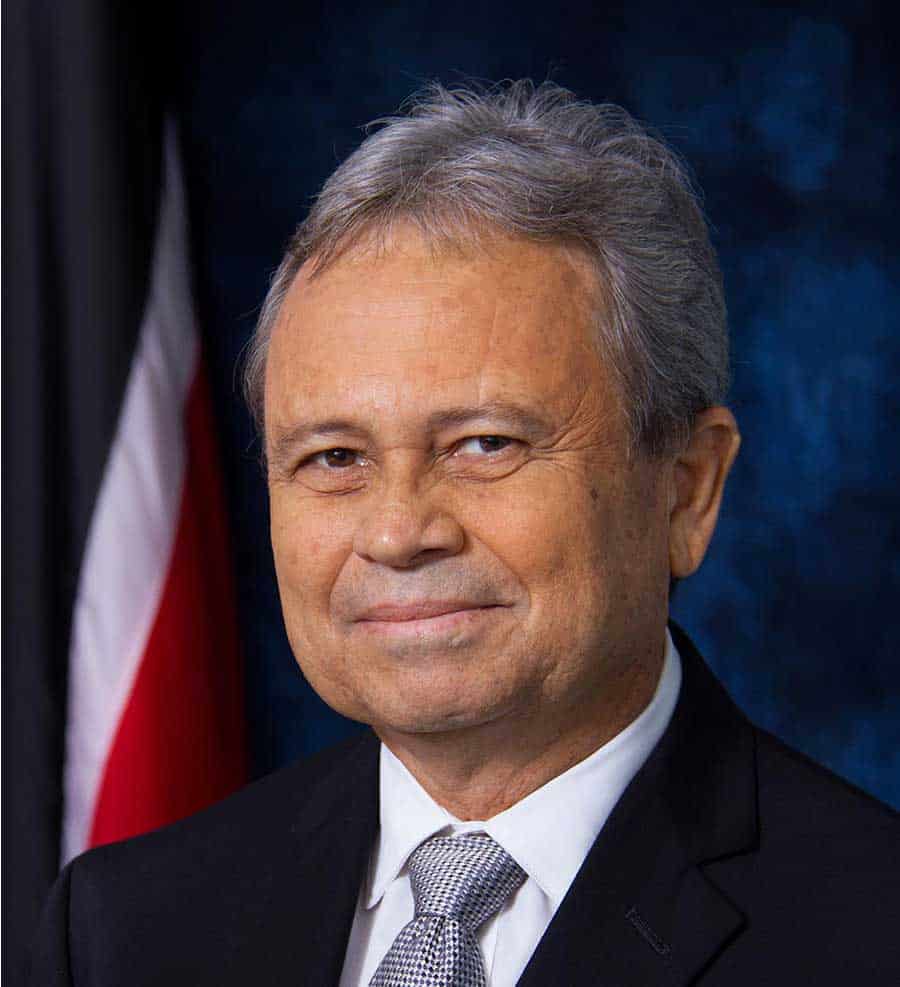
Above: Minister of Finance, Colm Imbert. Photo courtesy GORTT.
BitDepth#1166 for October 11, 2018
In this year’s budget documents, the Government hews to a now standard playbook for ICT, fuzzy top-level announcement with little information about practical applications or clearly defined timelines.
The budget statement, delivered in Parliament by the Minister of Finance, represents, despite its length, an executive summary of what the government considers important in its planning for 2019’s spending of the public purse.
The contribution to GDP by the ICT sector in Trinidad and Tobago contracted in 2018 to 1.1 percent from 2017’s 1.6 percent.
In much the same way that their predecessors wilfully misread the word innovation to mean “looks different,” the Rowley Government has truncated mentions of ICT and technology in budget documents to hardware deployments instead of system planning.
That’s a bit like trying to explain the game of cricket by describing what a bat, ball and wicket look like.
The biggest spending on a single line item that I can find is on the Public Sector Reform Computerisation Project, which shows up in the Public Sector Planning support documents.
That project, a massive and overdue effort at upgrading and installing new hardware and software across the institutions of government, has been allocated $156 million as part of the realisation of the new Vision 2030 themes.
In comparison, all of ICT spending in 2018 was $90.6 million from a budget of $134 million, or less than the government’s consolidated electricity bill of $114 million.
Most of next year’s ICT projects are understandably unsexy. It’s difficult to get your Parliamentary colleagues to thump their desks while discussing server upgrades.
So ICT pops up in the budget statement as arbitrary items, floating erratically on a tide of rhetoric.
The announcement of a resumption in supply of computers to secondary schools becomes part of “putting in place a governance structure of the management and coordination of ICT initiatives.”
In a particularly bold bit of hyperbole, Mr Imbert read the following into Hansard: “the use of laptops by students and teachers would facilitate the integration of ICT into curriculum delivery in all subject areas thereby laying the platform for the full integration of our citizens into the new digital economy.”
It won’t.
Dumping silicon into the school system has demonstrably failed, but choosing to implement a results-driven plan for improving Science, Technology Engineering and Mathematics (STEM) throughout the school system and supporting that with appropriate technology might work.
The government has also embraced an offer by the People’s Republic of China to participate in its Belt and Road Initiative (BRI) and announced interest in a proposed technology-driven industrial estate from ten Chinese companies.
But the BRI, launched in 2013, is proving problematic for some.
Countries with troubled economies and shaky governance structures are finding themselves trapped with insurmountable debt.
In July, Sri Lanka declared that its interest payments to China for projects undertaken under BRI were US$11 billion per year. The country eventually handed over Hambantota Port to China on a 99-year lease to reduce its debt burden.
It’s likely that what’s most interesting to technology countries in China is this country’s cheap electricity and proximity to US markets.
A massive and long overdue revamp of the systems governing police operations is also planned, a project that this column has advocated.
But this admirable aspect of the budget also reads like a massive gear dump.
An implementation of a software driven evidence chain tracking system is an excellent idea, but where are the file cabinets and larger cold rooms the Forensic Centre has been calling for over almost a decade?
Where are the allocations for training (which will be substantial), for system integration and migration of existing information gathering systems, which are overwhelmingly paper based?
How exactly is this country going to evolve, from the existing staff, police officers that represent “a more computerized and technology-savvy workforce?”
The current complement of the TT Police Service is stated as 9,000, in and out of uniform, making training in relevant ICT use both a significant priority and a large scale operation.
In 2018 by comparison, the implementation of computer support systems began at the Property Management and Real Estate Division, an agency which required the training of nine staff members. It was not declared complete in the 2018 budget summary document.

